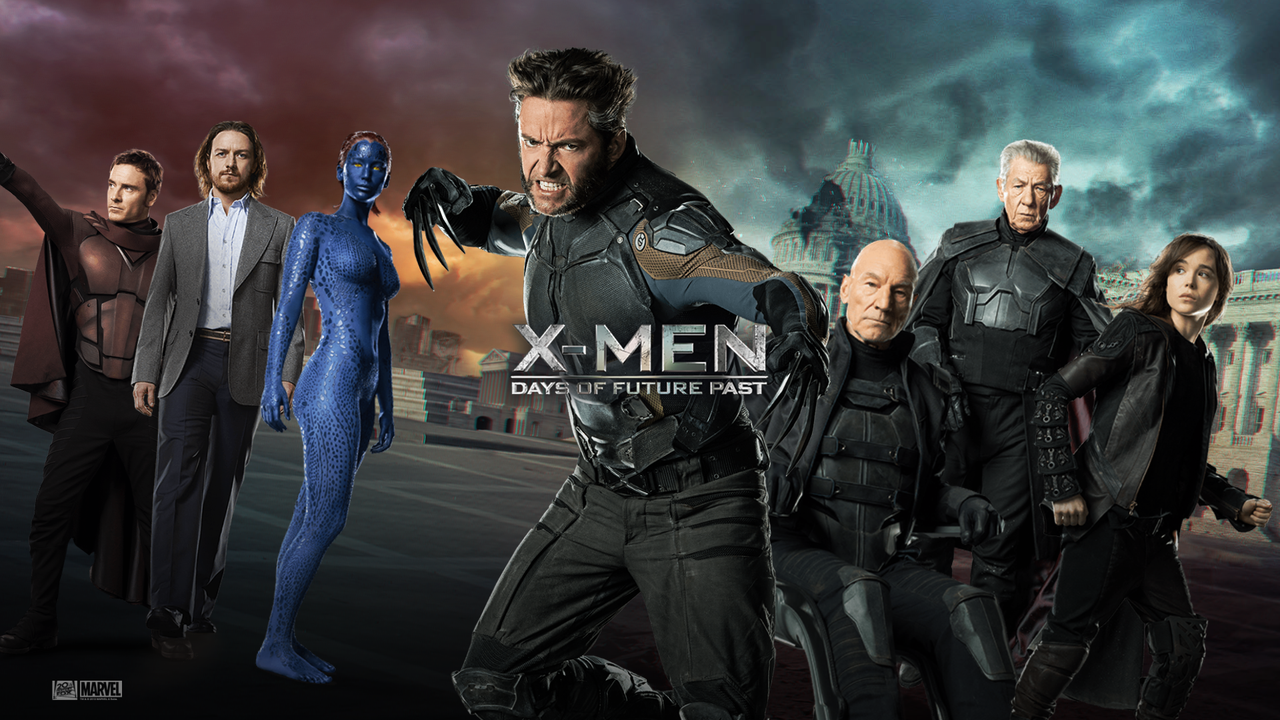When it comes to comic book films, and adaptations of comic books to the screen, there are questions about how you adapt certain comic book concepts to the screen, and as cinematic universes get more involved, there is no question that has lingered in the background more than “How do you clean up a cluttered universe?” How do you not only pull a retcon, but a big universe altering one?
Days of Future Past not only attempts to pull such a retcon, but succeeds, by creating a situation where the X-Men films can change course to a new path different from the first 3 films, while still giving credit to where the earlier films worked.
The film very loosely adapts the X-Men storyline of the same title, intercutting between an apocalyptic (lower case) future, where Mutants and their allies have nearly been wiped out by Sentinels and mutant hunting humans. Defeat is only a matter of time. Charles Xavier (Patrick Stewart) and Magneto (Ian McKellen), who are working with resistance groups, come up with a desperate plan to send the mind of a mutant back to the mind of one of their past selves, in order to save the world.
This mutant would have to have their mind sent back to the late 70s, when Bolivar Trask (Peter Dinklage) is assassinated by Mystique (Jennifer Lawrence) – turning him into a martyr for the mutant hunting cause. Kitty Pryde (Ellen Page) has the ability to send the mind back in time, but the strain would be too great for Magneto or Xavier to withstand, so it falls to Wolverine (Hugh Jackman) to go back, rouse Xavier to action, and stop Mystique.
It will be a great task, as in the 70s, the Xavier Institute has been shut down, with Xavier (James MacAvoy) basically having become Achilles in his tent, having dosed himself with Beast’s (Nicholas Holt) mutation suppressant so he can walk, but in the process costing him his powers. Beast himself has effectively become Xavier’s caretaker.
Xavier is basically written as a defacto junkie who has to get clean in order to save the world through motivating others to action – which sets up the theme of Xavier and Beast’s arc, and the theme of the movie itself – where the conflict focuses on motivating people to embrace their own agency, and to inspire people action without superseding their own agency by commanding them.
As is tradition, 1970s Magneto (Michael Fassbender) represents the other side of this conflict. He seeks to take action, and has no problem cajoling others, pressuring others, or ultimately threatening others to get his way – attempting to shame Xavier through intimidation after being rescued from being imprisoned in the Pentagon, attempting to kill Mystique after her failed assassination attempt, and after he learns about the Sentinel program and Trask’s experiments on the Hellfire Club in between films, attempting to murder not only Trask, but President Nixon and his cabinet live on national television.
Wolverine could have really overpowered this film, particularly considering how much he got shoved into the spotlight in the first three movies. Thankfully, while he is certainly present here, much as with X-Men: First Class, the focus of the plot is on Xavier and Magneto, and their relationship as characters. Wolverine’s role is instead simply to push people in the right direction, and let things take their course. When the climax of the film comes around, Wolverine is combat ineffective and is taken out of action for the film’s last 15-20 minutes.
As far as the film itself fares, Brian Singer has stepped neatly into the X-Universe, and tells this story very well in the process. I did enjoy this film, and in spite of all its flaws, it has motivated me to check out Apocalypse when it comes out on home video, or if it plays at a nearby second run-theater.
